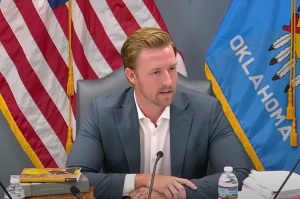A Gruesome Harvest
Aborted Fetuses and Their Organs
For years, scientists and celebrities supporting embryo-destructive stem cell research have used two arguments. First-blind to the destruction of the embryo itself-they argue embryonic stem cell research will save lives. Second, they maintain that embryos leftover from fertility treatments will otherwise be wasted.
Now, one stem-cell expert is using these same arguments to promote harvesting organs from aborted fetuses.
Speaking at a conference in March, Oxford University stem-cell expert Sir Richard Gardner commented that he was surprised the possibility had not been considered, and that experiments in mice have shown that fetal kidneys grow extremely quickly when transplanted to adult animals
As reported in the UK's Daily Mail, Sir Richard, an advisor to Britain's Human Fertilization and Embryology Authority sees this ghastly practice as a potential solution to the shortage of donated organs-and to what we are learning about the ineffectiveness of embryonic stem cells.
While advocates of using embryonic stem cells have long hailed them as the El Dorado of disease prevention, they're not. Sir Richard calls the creation of fully functioning organs from embryonic stem cells "remote."
Gardner isn't a lone voice in this ethical wasteland. King's College professor Stuart Campbell did not object. Speaking of the many babies aborted late in term, he said, "If they are going to be terminated, it is a shame to waste their organs." He added, "I am sure very few of those on the transplant list would rather die than accept an organ from an aborted fetus."
Here in the United States, bioethicist Jacob Appel, writing on the subject in the Huffington Post, states, "The first striking feature of fetal organs is that their supply...is unlimited...pregnant women who provide fetal kidneys could do so repeatedly."
Appel grants that abortions would likely rise as a result, but even so, he believes we have "a moral duty" to legalize the marketing of fetal organs. How nice, too, he says, that poor women could benefit by selling the organs of their aborted children.
And then, Appel dreams of a day that "scientific research may make possible farms of artificial 'wombs' breeding fetuses for their organs."
Unimaginable as it may seem to some of us, there are scientists and so-called ethicists perfectly willing to carry their utilitarian thinking to its freakishly cruel, murderous extreme.
But while the U.S. has laws in place-at least for now-to prevent the harvesting of aborted fetuses, who knows what will happen if other countries begins selling fetal organs.
That day may not be far off. In 2003, Chinese doctor Wang Tong reported successfully growing an in vitro human heart for 13 days. Where did that embryonic heart come from? From an aborted 7-week-old fetus
All of this amplifies the need for Christians to boldly and steadfastly defend the sanctity and inviolability of human life from conception through natural death.
Because as medical technology advances and ethical standards crumble, the stakes only grow higher.





























